The Congolese Candidate
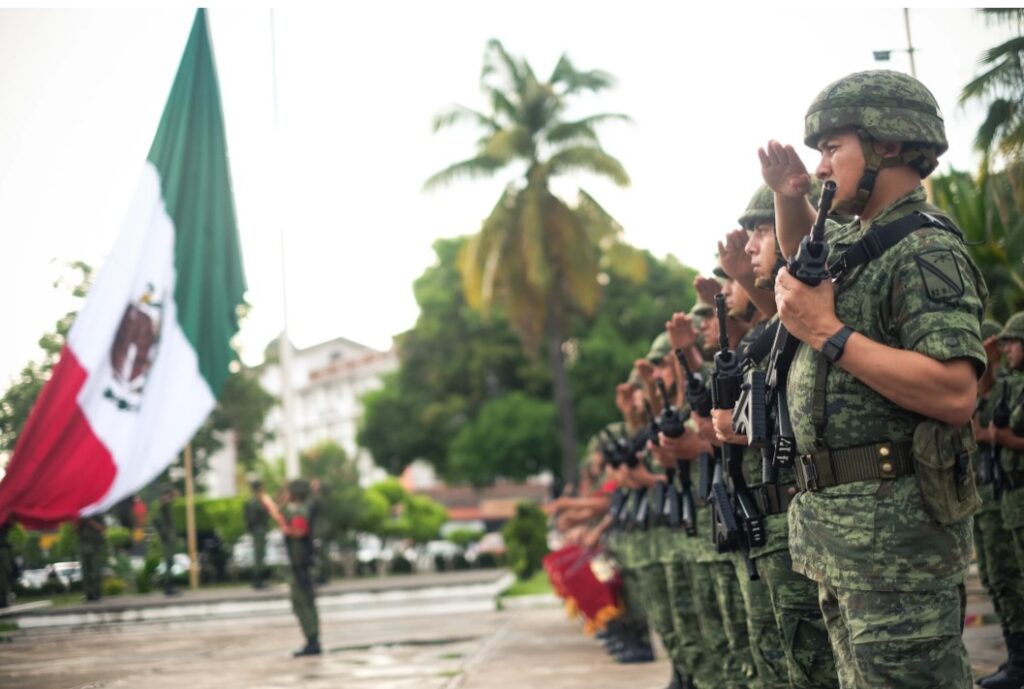
Mexican Army Soldiers perform a daybreak salute, Port of Lázaro Cárdenas (Photo: Michael Jerome Wolff/2018).
By Michael Wolff
Political Science Department, Western Washington University
NOTE: Isaac Muamba Kalonji is from the Congo but lives under the protection of the Mexican Government and has lived in Mexico since 2003.
I noticed a suspiciously well-postured man sitting atop a metal fold-up chair on the other side of the room. Sporting an Italian wool suit and a bright red tie, he stood out among this rabble of cowboy-hatted avocado growers and cattlemen in more ways than one. “He hasn’t touched his pozole,” I whispered to my colleague under the drone of a dispassionate speech. “Do you think he’s African?”
“Mexicans can be black, too, you know,” my good colleague scoffed. But I must have scowled back at him, for he quickly qualified this. “Well, I suppose he does look a bit out of place here.”
Indeed, here was an odd place to find us, too—two thickly bearded, girthy-at-the-hips pixie-white Americans. It was a secret meeting of anti-cartel militia leaders—autodefensas (“self-defense forces”), as they call themselves—at a ranch house about twenty miles outside of Morelia, the capital of Mexico’s Michoacán state. We had been invited there by their chief spokesperson, the inordinately tall and dazzlingly handsome old firebrand, Jose Manuel Mireles, a.k.a. “el doctor.” Having just been released from a three-year stint in federal prison on illegal weapons charges, the silver-haired charismatic hoped to use the meeting to jumpstart his campaign for state governor in 2021.
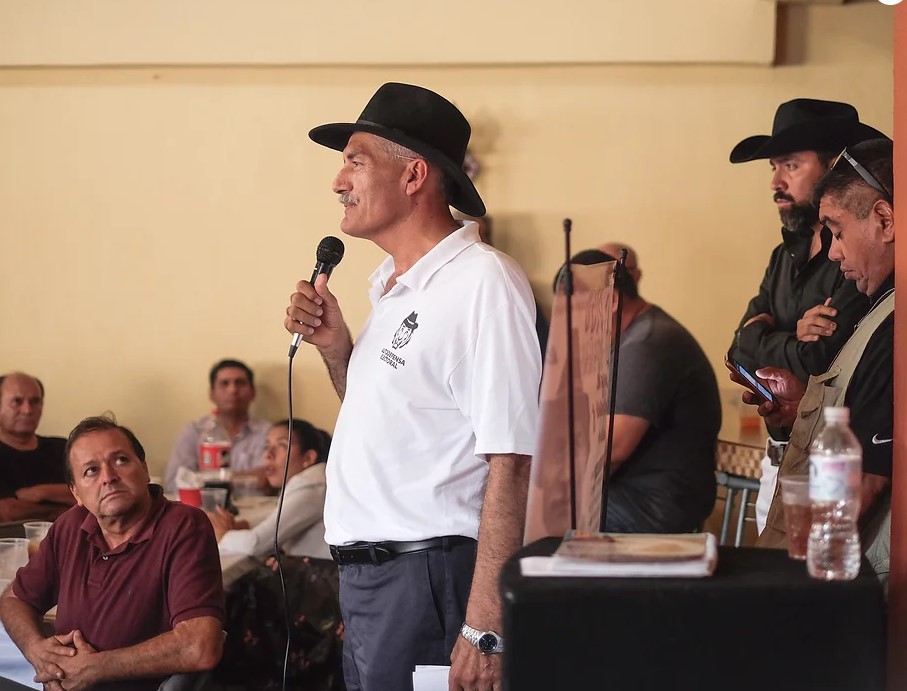
As you might expect from a secret political rally three years ahead of itself, none of the many speeches made that day were particularly riveting, which left my mind to wonder, who was that man with the courtly posture? Then, as I paid the barest of attention to the drone about me, “el doctor” announced it loud and clear through his microphone:
“Please welcome Mr. the future president of the Democratic Republic of Congo!”
As this honorable mention provoked no greater applause than when Mireles announced my own presence just moments earlier, I assumed everyone else was as perplexed as I was. I mulled it over to no avail. What the devil was a Congolese presidential candidate doing here?
I ran to meet him as soon as the speeches ended. Fortunately, no one else had the same idea, and so for some precious few minutes I was able to become acquainted with a future president for the first (no, second) time in my life (the first was a haphazard encounter with the now impeached Brazilian ex-president, Dilma Rousseff, in 2009).
“Hello Mr. Kalonji—” I started.
“Please, call me Isaac,” he said in a perfect Spanish with French-African intonation.
“You’ll have to forgive my ignorance,” I said, shaking his hand. “But how…what…why are…?”
He laughed kindly at my bumbling. “It’s okay, I’m used to people not knowing what to make of me here in Mexico.”
I told him that I was a professor of political science, that I often taught about the Congo in my classes, and that I would love to know more about his plans here. He smiled, and then jumped right into his complicated family story.
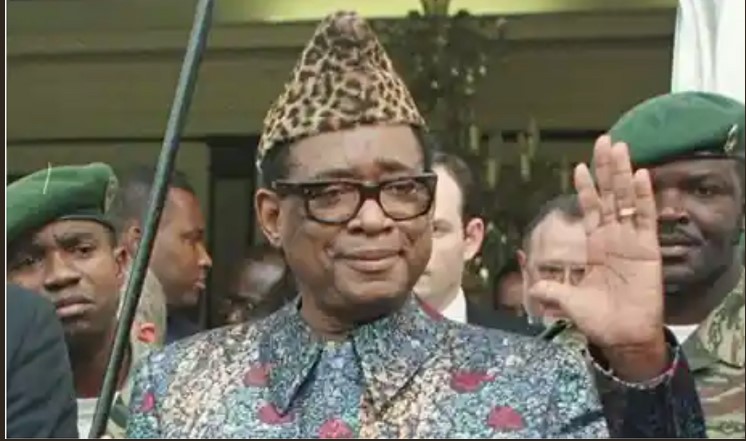
Isaac’s father, Albert Kalonji, had been a low-ranking military officer in the Force Publique, Belgium’s colonial army in the Congo. In 1960, on the eve of the country’s independence, he participated in a mutiny against his colonial overlords and in support of Patrice Lumumba, who was soon to become the nation’s first democratically elected leader. Months later, however, Albert was forced into hiding when Lumumba was overthrown in a coup by the now notorious “kleptocrat,” Joseph Mobutu. For the next three decades Albert and others waged prolonged insurgencies against the Mobutu regime to little avail. However, in 1996, neighboring Rwanda financed and directed a rebellion inside the Congo that, in less than a year, succeeded in ousting Mobutu once and for all. Having jumped on board with this new rebellion, Albert hoped to be given an important post in the new government. Instead, the Rwandans opted to put another old dissident in the presidential palace, Luarent Kabila, who quickly purged his administration of anyone who might contest his power. This included Albert, who later died in prison “under mysterious circumstances.” Fearing that Kabila might go after him, too, Isaac then fled the Congo, traveling first to Spain and then later to Mexico, where he was offered asylum in 2003.
“Wow, that’s a lot to take in,” I said.
“I have a deep love for Mexico, for it opened its arms to me in my hour of need,” Isaac continued. “But don’t get me wrong, professor, I have no intention of staying here. My country needs me, now more than ever, and I will be going back there very soon.”
Very soon, indeed, according to his estimates. In just over a month, on August 24, an historic election was to take place in the DRC (Democratic Republic of Congo), and Isaac was going to win it. If all went as planned, he would unseat Joseph Kabila, the son of the man who ordered his father’s death two decades before.
Suddenly, I felt the gigantic hand of Dr. Mireles grasp my shoulder. “Is now a good time to discuss your proposal, Mr. President?” He said, gazing down at Isaac, and then winking at me.
“Now is an excellent time, Mr. Governor,” Isaac smiled upwardly.
In a moment we found ourselves encircled by metal fold-up chairs. Two very attractive women in stilettos directed us to sit down, and then went off to retrieve the other attendees of this secret encounter. We were six in total: Isaac, me, Mireles, the two stilettos, and one other man who I recognized from television news as high-ranking autodefensa leader. We went around the circle introducing ourselves. Then, without further adieu, Isaac explained his cause.
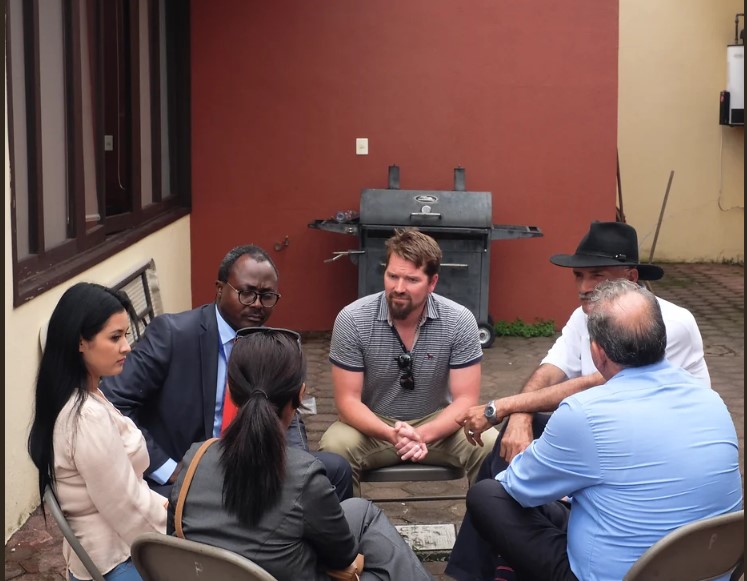
The birth of a political-criminal conspiracy of high order (photo: Eifford/2018).
“As you all know very well,” he began in a Churchillian tone. “My country has been ruled by ruthless dictators for much too long.”
He spoke of the great tragedy of the Congo, the squandering of democracy by greedy, undeserving autocrats, and the ceaseless wars that have caused millions to die and millions more to live in a state not worthy of beasts. However, he assured us, the time for change had finally come. He, Isaac Muamba Kalonji, son of his father, would soon become president of his beloved motherland, and he was going to make right what so many others before him had gotten wrong. He was going to govern for the Congolese people, not for the warlords or the foreign businesses that brought only misery and destruction. He was going to invest in education and healthcare, bring schools and clinics to the most remote regions of the country. He was going to wipe out the endemic corruption that had hamstrung economic development and eviscerated the rule of law. Shaking his finger in a fervor, he insisted that “No man shall be above the law!”
In the midst of this performance, I tried to read the faces around me. They were all nodding their approval for Isaac’s big words, but they also looked confused and slightly ashamed, like they hoped he wouldn’t call on them to agree about anything specific.
“So what do you need from us?” Mireles asked Isaac after a long pause.
“Ah, yes,” Isaac laughed. “I was just about to get to that. But first let me explain what I have to offer you.”
“Go on,” Mireles said, expressionless.
“I am talking about hundreds of millions of dollars’ worth of diamonds!”
“When I take my rightful place at the helm of my country next month,” he said, careful to make eye contact with everyone in the circle, “I will automatically be given diplomatic immunity here in Mexico. With that, I will be able to bring with me a locked briefcase, unchecked and uncheckable by the authorities, any and every time I return to visit you here. As you know, my country is filthy rich in diamonds, my friends. And so it is, I can get you, if you want it, briefcases full of diamonds, completely tax free and off the books. Let me be clear. I am talking about hundreds of millions of dollars’ worth of diamonds!”
Now the faces lit up like fireworks, all except for Mireles, who remained impassive.
“I understand that you control the port at Lázaro Cárdenas, am I right?” Isaac prodded the doctor, referring to Mexico’s largest industrial port of entry on the Pacific coast. “Or, at least, you have some influence there?”
“Ahem, uh…yes, of course,” Mireles coughed like he was taken off guard—Note: My own interviews in the port city of Lázaro Cárdenas suggested that Mireles did not, in fact, exercise any sway there.
“I will also be able to smuggle out shiploads of illegally mined coltan, and if you can smuggle it into Mexico for me, I can sell it to you here for fifty dollars per kilo, less than half the legal market price!”
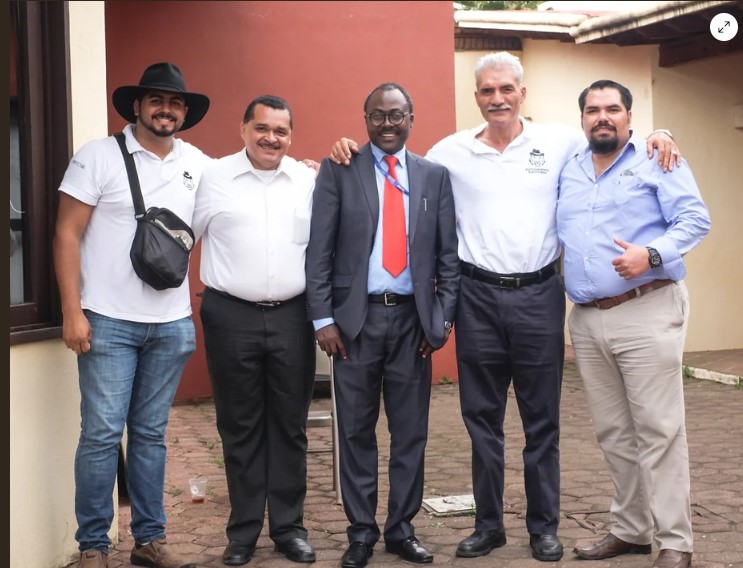
“Well, my friends,” Isaac continued. “Once back in my country, I will also be able to smuggle out shiploads of illegally mined coltan, and if you can smuggle it into Mexico for me, I can sell it to you here for fifty dollars per kilo, less than half the legal market price!”
The faces popped with joy.
“Well, my friends,” Isaac continued. “Once back in my country, I will also be able to smuggle out shiploads of illegally mined coltan, and if you can smuggle it into Mexico for me, I can sell it to you here for fifty dollars per kilo, less than half the legal market price!”
“And best of all,” he added. “Through my contacts in Angola, I will be able to ship you more guns than you could possibly dream of. I’m talking about AK-47s, .50 Caliber machine guns, and even rocket launchers, my friends!”
“Oh!” one of the stiletto’s gasped like a record player grinding to a halt in the middle of a song. The faces were suddenly wrenched into wide-eyed discomfort.
After another long pause, Mireles finally asked, “And what is it you want in return?”
“Well,” Isaac said, sitting back in his chair. “In order to secure the success of my electoral victory at this last minute in the game, I ask only for a small donation of three million dollars, in cash.”
(Gasping all around).
“That is a very small amount of money, don’t you agree, Dr. Mireles?” Isaac again prodded. Then, remembering something, “Oh yes, I also will need a beautiful Mexican wife to be my first lady. The Congolese, you see, love foreign women, and it will most certainly help me in the polls, and also for my legitimacy once I am president, to have one of your beautiful women at my side.”
“Oh no! Doctor, please don’t make me go!” cackled one of the stilettos nervously, perhaps unsure if this last comment was meant as comic relief or as an actual request.
By this time, an opaque feeling of terror had begun to creep up through my intestines, rattling in my chest cavity and ringing in my ears like an old lawn mower. If all that I had just heard was real, I thought, then I was a direct witness to what amounted to an international political-criminal conspiracy of the highest order. A voice of panic screamed from within, Oh my, I know too much! They’re going to kill me!
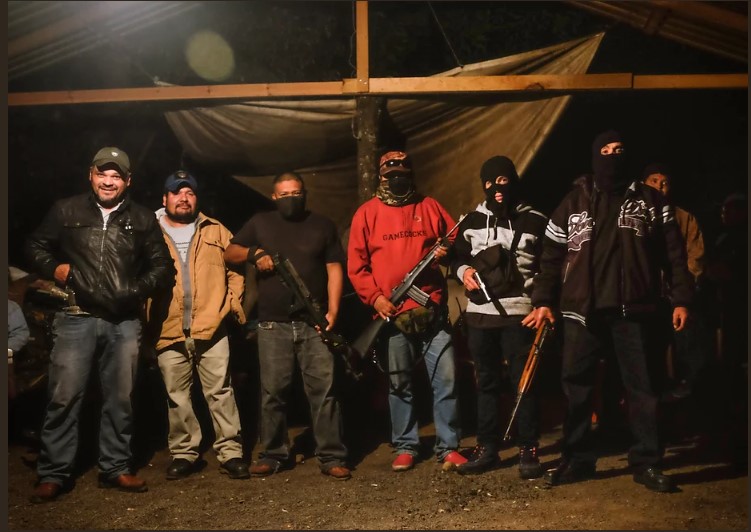
My colleague and I sweated the hour-long drive back to our hotel in Morelia, making several wrong turns for the jitters, certain that our assassins were waiting to pounce at each endless stoplight. Churning around what I had heard in the meeting, we worked ourselves into a veritable panic. Our rental car, a small Chevy sedan, began to feel like nothing more than a tin can filled with gasoline. We imagined the aftermath, crowds of onlookers staring aghast at our bullet-riddled bodies as they hissed and popped inside the burning vehicle. Such scenes had become commonplace in the parts of Mexico where cartel wars waged, and we were, to be sure, in the eye of that hurricane.
But something—or lots of things—seemed to be missing from Isaac’s story. Why would a Congolese presidential candidate be haggling an old vigilante in Mexico for campaign money, especially for an election just six weeks out and eight thousand miles away? There was also something suspicious in the way that everything he offered the Mexicans—blood diamonds and rocket launchers and such—so closely matched Western stereotypes of life and politics in the Congo. Indeed, it is probably safe to say that if Mireles and his campaign team could imagine anything at all about Central Africa, it was this and only this. By the time we parked in front of our hotel, my fears of imminent demise had begun to subside, giving way to a gnawing curiosity to know who Isaac Muama Kalonji really was.
And so I texted him (We had exchanged numbers after the secret meeting), and invited him out to drinks. He said he had scheduled a meeting with the mayor of Morelia that evening, but a few hours later indicated that the meeting had been canceled. “I don’t drink,” he told me, but agreed that some fresh air might do him well.
In any case, his giddy political consultant, a 29-year-old bombshell from Queretero named Rebecca, insisted he join us. “Did you know today is Isaac’s birthday?” she laughed coquettishly when we met up at an open-air bistro on the plaza around 10 p.m. “I told him that here in Mexico one is not allowed to spend his birthday all alone in a hotel room!”
“Isn’t it also tradition that one must drink on his birthday?” I said playfully, but out of a real concern for the awkwardness of meetings with politicians in the absence of alcohol.
“Yes, it is! Thank you!” Rebecca blurted out as if greatly relieved there were still sane people in the world.
Isaac, however, stuck to his guns and ordered decaffeinated green tea. It was such an odd request for a Saturday night that our waiter, Guillermo, a middle-aged polyglot of aristocratic tastes and temperament, looked to be viscerally offended by it. And this, I recognized immediately, was my chance to uncover the mystery. Excusing myself to go to the bathroom, I ran to conspire with the exasperated waiter in the bistro’s dark interior corridor. “Guillermo,” I pleaded. “The man out there turned thirty-nine years old today. He says he’s going to be the next president of the Congo. I need to get him drunk!” To this, Guillermo’s lips stretched into a gleeful smile of cartoonish proportions. He told me not to worry. He would take care of it.
A few minutes later, Guillermo appeared from behind Isaac with a silver platter upon which rested a large shot of mescal and a maroon-colored chaser drink. Visibly irritated upon seeing it, Isaac attempted a refusal. But the rest of us, following Rebecca’s lead, chanted, “Drink it down! Drink it down!” like a band of fraternity brothers. Then, true to his word, Guillermo took matters into his own hands. He wrapped his arm around Isaac’s neck in a sort of half-Nelson, and pulled his head backward. With his free hand, he poured the shot of mescal into Isaac’s mouth, and then rather violently shook him in an effort to force the burning liquid down his throat. This process was repeated twice more in very short order, and by the time I had sip-finished my first mescal, the whites of Isaac’s eyes had turned a deep red, his wit and humor made unabashed, and his tongue a tool of gross bewilderment.
“Do you know why I want to be president of the Congo?” He asked me, his Victorian elegance reduced to a spitting of words. “It is because I want to become filthy rich!”
“Oh!” I said, taken aback by his directness. “But what about battling corruption and poverty and all that?”
“Yes, of course,” he continued. “I want to be president in order to finally put an end to the tyranny to which my people have so long been subjected…the tyranny of brutal and ruthless dictators…the tyranny of corruption…the tyranny of poverty! My people deserve better than that!”
Like a pendulum swinging between extremes, the nature of Isaac’s explications and pronouncements lurched abruptly from magnanimity to malevolence, from philanthropy to outright greed. But soon his mind veered irrevocably towards the latter, obsessing over the great riches that could be had once he was in power. He already had lots of experience in shady business deals, he bragged. He had smuggled diamonds to Chavistas in Venezuela and guns to the FARC in Colombia. He had connections in Brazil that he used to smuggle illegally-cut hardwoods from the Congo to Europe and the United States as if they were shipped from legal operations in the Amazon. Over and over, he spoke of “hundreds of millions of dollars” and “untaxable profits,” working his way into a state of ecstasy as the syllables rolled off his tongue. I began to ask myself why in the world he should be saying this all to me.
An hour into this strange fantasy, all of us at the table had grown exhausted. As his inebriation wore off, a look of unease, or maybe embarrassment, cast over Isaac’s face. Rebecca appeared to feel embarrassed, too, as if things had been said, comments that she laughed along with, had compromised the better sense she had of herself. For my part, I could have collapsed from fatigue, for the day had been a rollercoaster of fright and fickle.
On the other hand, I also felt deeply relieved. The mysterious man before me, Isaac Muamba Kalonji, was almost certainly no presidential candidate. No, he was merely a con artist. A clever and daring one, to be sure, but a con artist nonetheless. He was probably Congolese, and given his education and social mannerisms, he and his family could well have been involved in elite Congolese politics at some point, perhaps before or during the great wars of the millennium. But he was not going to rule that huge country in the heart of Africa within a month’s time. No way, no how. Like any old email scammer, he just wanted to play off the existing hopes and ambitions of others in order to fool them into handing over a bunch of cash. In this case, three million dollars. I was almost sure of it.
Back at the hotel, I searched Google to learn all that I could about Isaac and the Congolese elections. I found his Facebook page, which had only a few hundred followers, but seemed to serve as his primary online campaign platform. There, he posted news stories about the upcoming Congo elections along with information about his party, the UDESC (Union pour le Developpement Social et Comunitaire), and its 8-point plan to tackle corruption and develop the Congo. I also found some French-language articles about him posted in obscure online news blogs, and a B-grade media outlet in Mexico City even had a video interview with him about his campaign. But nothing in the mainstream media anywhere in the world ever mentioned his name in relation to Congolese politics, or at all. A fraud he must be, I concluded.
The next morning, out of a strange and irrational sense of loyalty, I texted Dr. Mireles to warn him that the Congolese candidate was not to be trusted. He said thank you, and that he, too, had his suspicions. I then messaged Rebecca to explain my perspective on things. Her response was much colder. She had known Isaac for years, she responded, upset and on the defensive. A few days later, she qualified this. “I didn’t really ever know him, though.”
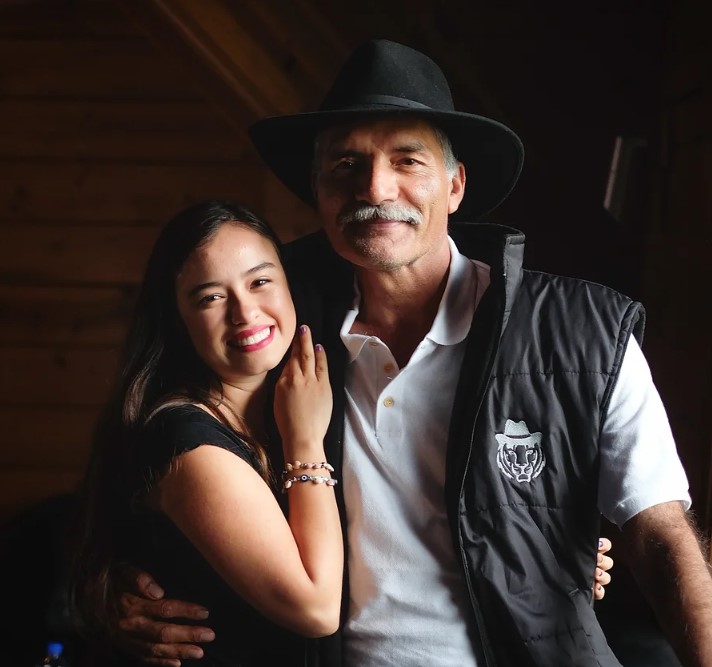
Dr. Mireles poses with his young fiancé at a meeting in Morelia (Photo: MJW/2018)..
In the end, the August 24 elections in the DRC were postponed, not for the first time, by the reigning president, Joseph Kabila, who many expected would try to hold on to power indefinitely. But under increasing pressure from the international community and domestic opposition groups, he finally relented to hold elections in December 2018. According to analysts at the time, the whole affair was wrought with corruption and fraud. Kabila did leave office, but the new president, Felix Tshisekedi, did not actually win the elections. The man who did, Martin Fayulu, resigned himself to staging protests around the country for a short while. Needless to say, Isaac Muamba Kalonji never so much as showed up on the ballot.
*************
Bellingham, WA: 30 March 2020
A year and a half has gone by since my encounter with the Congolese candidate in the highlands of Michoacán. On occasion I still think of him, still wondering perplexedly who was that stately man? How daring he was to attempt to swindle the autodefensa leadership, bloody killers in their own right, out of so much money! Part of me admired him for that, and part of me felt repulsed by his avarice and lies. In the end, however, I could neither like nor dislike him, for that would require me to actually know him. One cannot ever really know a pathological liar.
What has become of him since then? I do admit I feared much for his life, for no small number of misfortunate souls have vanished up in those foggy highlands for far lesser offenses, or for none at all. But a brief Google search this morning has relieved me of such concerns. In a terribly written article published on 7 February 2020 in what I presume to be a fake source of “industry news,” Isaac appears again. This time he is portrayed as a “representative” of the Democratic Republic of Congo having just signed a deal with a Mexican energy company, granting it a monopoly concession for the construction of waste-powered electrical plants across the Congo. Out of curiosity, I emailed the company to inquire about the concession. I do not expect they will respond. I do not expect they really exist. Isaac, however, seems to be alive and well, and doing what he does best.
Article republished with permission from Michael Wolff, author and photographer. To read other articles by Michael Fox… visit his website at: https://www.michaeljeromewolff.com/
Political Science Department, Western Washington University, Arntzen Hall 415, MS 9082
516 High Street, Bellingham, Washington 98225-9082 – Email: [email protected]


